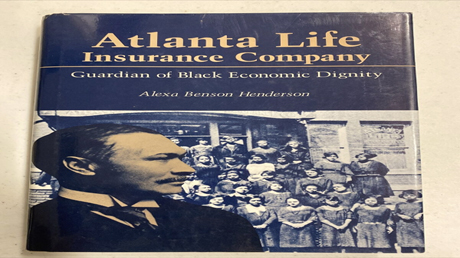Lost Black History
By Don Valentine
A little known fact is that Atlanta’s first Black millionaire, Alonzo Heandon, was born a slave in 1858. He lived as a slave child of his master, Frank Herndon, for seven years before Emancipation. Two years after the Emancipation proclamation was signed, his family was set free. They endured the common plight of emancipated slaves and languished in poverty. This forced his family to work as sharecroppers to survive. History details how Blacks were surreptitiously forced to continue their involuntary agrarian servitude.
This was the start of his august “rags to riches” story. In 1878 a 20-year old, poor young man left his family on foot with only a year of “slave schooling,” the clothes on his back and $11. Life’s path led him to Jonesboro, where he opened his first barbershop. This man was a brilliant business prodigy. It took just a couple of years to acquire a reputation as a great barber. He spent about five years in Jonesboro, and set his aspirations to the capitol of Georgia. Arriving in early 1883, he secured a “Chair” at a shop owned by William Hutchins. After six months Alonzo purchased half interest in the shop, entering into a partnership with one of the few free antebellum Black barber shops. This was the Black mentor with the acumen to prepare him for his business legacy.
A subtle tool in late 19th century was being a mulatto Negro.
He was able to operate among the White elites because he could “Pass.” That comfort level in the White upper-middle class benefited him with the connections to create the Crystal Palace salon. This opulent barber salon was just off Peach street, in the heart of Atlanta’s “Sweet Auburn” district.
The opening in 1902 was highly publicized and presented the elite public with a full orchestra and souvenirs for visitors. Once you entered, you would be ensconced with crystal chandeliers, large mirrors and more than two dozen leather upholstered chairs in the two story barber salon. The Crystal Palace also had 20 baths on the bottom floor, and the very first plate glass windows in the city of Atlanta. The Crystal Palace soon garnered the reputation as the premier Negro Barber salon in the country. The barbers were all Black and the clients were almost exclusively White Atlanta’s leading lawyers, judges, politicians, and businessmen.
The cornerstone of Alonzo’s fortune was gambling on the purchase of a decrepit failing insurance company. He bought a company which had $5,000 in assets in 1905 and by 1922 the company had more than $400,000 in assets. That year Alonzo changed the name of the company to Atlanta Life Insurance Company. According to blackpast.org, “Atlanta Life was one of the most successful Black businesses in the nation by the 1920s.”
Alonzo was so financially prodigious, he bought one of the largest mansions of the time in Atlanta. The Herndon Home is registered now as a National Historic Place. A lost Black history story of fortitude, that is not taught in schools!

